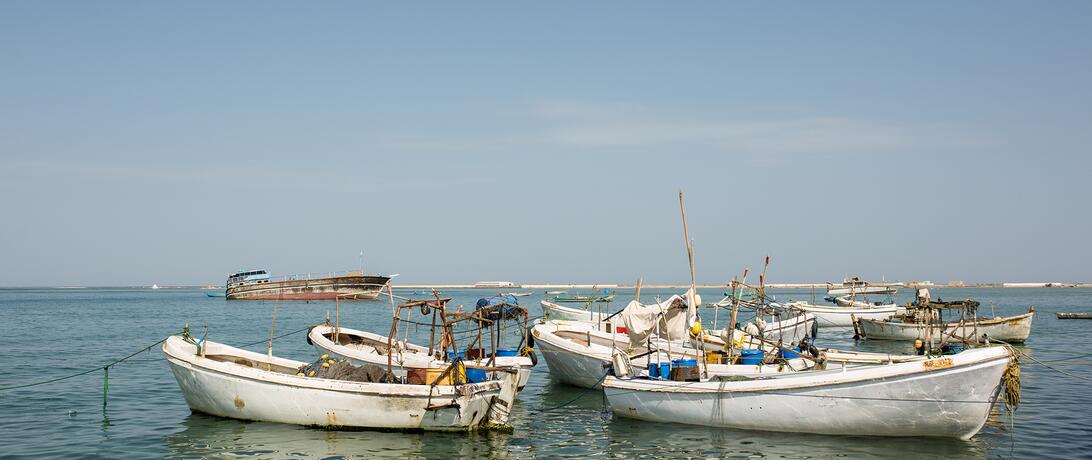
Director, Dr. Sarah Glaser and Secure Fisheries led Research Featured on Fisheries Conflict Panel
Dr. Sarah Glaser presented Secure Fisheries’ research on the webinar “Fish Wars and Blue Conflicts” hosted by the University of British Columbia’s Institute for the Oceans and Fisheries on April 6, 2022.
The webinar convened leading researchers on fisheries and maritime conflict to discuss types of fisheries conflicts, the risk of these escalating into militarized conflicts, and the impacts on affected communities and marine ecosystems. The webinar also explored options for preventing and transforming these conflicts in ways that benefit the well-being and security of coastal communities while also protecting the long-term sustainability of the marine environment.
While war at sea may remain a rare event, declining fish stocks and geopolitical tensions are pushing maritime security to the forefront of the international community.
“International conflicts over fisheries have increased in number and intensified,” writes UBC Institute for Oceans and Fisheries. “Despite its sustainability and equity principles, the push for a ‘Blue Economy’ has resulted in a growing number of socio-environmental conflicts, with at least 600 conflicts around the world pitting local communities seeking to protect their livelihoods and ecosystems against large-scale marine and coastal projects.”
Dr. Glaser’s presentation demonstrated how Secure Fisheries is directly addressing these global challenges, highlighting the conflict research recently published by their team. The research paper was spearheaded by Colleen Devlin, Research Associate with Secure Fisheries, and investigates the frequency, causes, and consequences of fisheries conflict around the Horn of Africa (Tanzania, Kenya, the Somali region, Djibouti, Eritrea, and Yemen).
“Fisheries conflicts can be generalized at three scales: those between countries over significant or valuable fisheries, those between fisherfolk or fishing communities over small-scale fisheries, and those between artisanal or small-scale fishers and industrial-scale fishing vessels, often from other countries,” comments Director Glaser. “While the first form gets the biggest headlines and is most likely to involve navies or other security forces, the second two forms are far more likely to lead to immediate harm to both fishing communities and marine ecosystems.”
Fisheries conflict and declining fish populations have the potential to undermine peace, stability, and health if not addressed, and Secure Fisheries continues to lead at the intersection of peace, livelihoods, and sustainability.
Article Details
Published
Topic
Program
Content Type
News